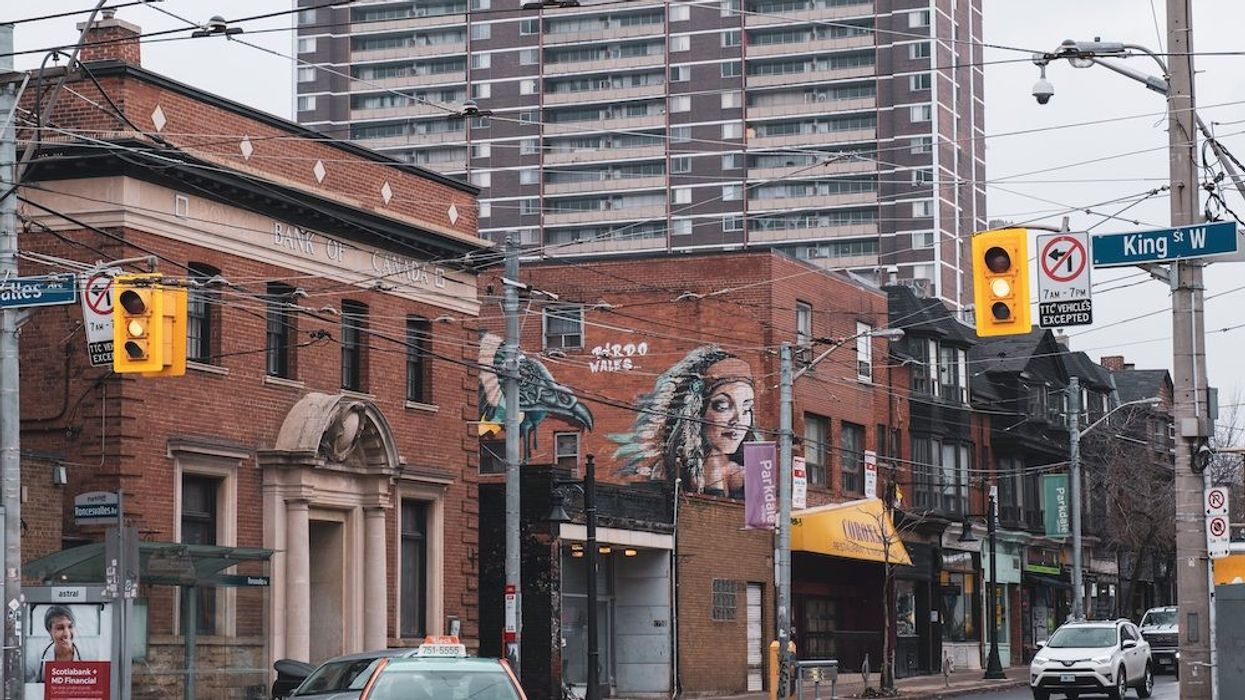Parkdale is the latest neighbourhood to receive an infusion of supportive modular housing, as the City of Toronto announced today it has received federal funding to create 400 new homes, 51 of which will be a modular community constructed at 150 Dunn Avenue.
A total of $201.5M has been allocated to the City via the second phase of the Rapid Housing Initiative (RHI); combined with the funding received in Phase 1, that totals nearly $440M through the program, which has a mandate of creating 1,000 new homes within a year; in late 2020, Toronto received more than $238M to create more than 600 new affordable rental homes.
“Through the Rapid Housing Initiative, our government is investing in affordable housing here in Toronto and across Canada to help create jobs and improve the quality of life for those who need it most,” stated Arif Virani, MP for Parkdale—High Park. “Thanks to today’s announcement, low-income members of my community of Parkdale-High Park now have access to affordable homes.”
The new modular housing will be dedicated to Toronto’s most vulnerable populations including seniors, women, Indigenous residents, racialized people, those with disabilities, as well as others who are experiencing or are at risk of homelessness. All three levels of government have had a hand in bringing the site’s development to fruition, including receiving a Minister’s Zoning Order (MZO) from the province to expedite development approval. The City is also partnering with the hospital and social service sector, which has provided the land and will also provide support services to the community.
Modular Housing an Answer to Toronto’s Homeless Crisis
This initiative to utilize modular housing -- which, built off-site, has proven to be a faster and less-expensive alternative to traditional housing -- is a first-of-its-kind in Canada, and a key component of the RHI. The second phase will also include traditional building methods to support the creation of at least 427 new permanent affordable and supportive homes in Toronto. The initiative also focuses on the acquisition of City lands for the purpose of affordable housing, as well as the rehabilitation of existing buildings to create residential units. According to the City, 27% of the funding through the RHI will be dedicated to Indigenous-led organizations, and 40% to women-led households.
READ: Modular Housing Offers a Solution to Toronto’s Housing Crisis… But NIMBYs Aren’t Happy
This latest round of funding also supports the City’s efforts to address the sharp uptake in homelessness as a result of the pandemic, boosting the 24-month COVID-19 Housing and Homelessness Recovery Response Plan, which aims to deliver 3,000 new affordable and supportive rental homes by the end of 2022, ahead of schedule.
"Toronto is now on track to exceed its target in 2022 by creating more than 3,300 new and affordable homes for people and families who are facing homelessness,” stated Toronto Mayor John Tory. “We are working as fast and as hard as we can to provide deeply affordable housing, with adequate wrap-around social and health supports, because that is the key to ending chronic homelessness. The Dunn Avenue site under construction now shows that when governments work together with our healthcare partners and community organizations, we can get housing built that helps people experiencing homelessness in months not years. I'm committed to continuing this progress on housing and working with our partners to get more housing built as soon as possible."
Overall, the City has set an ambitious target of approving 18,000 new supportive homes over 10 years in the HousingTO 2020-2030 Action Plan. Today's announcement includes new capital funding for supportive housing projects that will support people experiencing or at risk of homelessness to achieve housing stability and begin improving their health and well-being.
But Will They Get Built?
While today’s announcement brims with optimism for the supply of supportive housing, it hasn’t exactly been smooth sailing for previous supportive modular developments implemented under the RHI umbrella. Two sites underway as part of the City’s Modular Housing Program have faced steep neighbourhood opposition and development delays.
A Willowdale site at 175 Cummer Avenue has languished after failing to receive an MZO from the province, forcing the City to take the traditional rezoning route, while enduring a misinformation campaign by resident associations. Meanwhile, locals have decried a similar development underway at Trenton and Cedarvale Avenues in East York which would result in the removal of a large parking lot -- the “heart of the community” according to one resident.
However, the program has seen some success, with its first two sites completed at 11 Macey Avenue and 321 Dovercourt Road within nine months, and are now providing 100 affordable homes for individuals exiting homelessness.
So, it remains to be seen whether similar roadblocks will occur for Parkdale’s proposed units -- or whether they, too, will be derailed by NIMBYism.





















